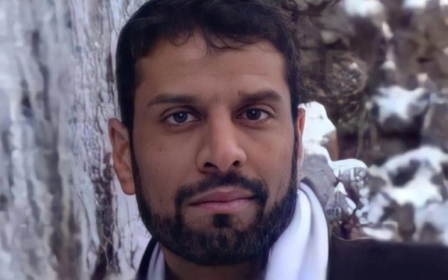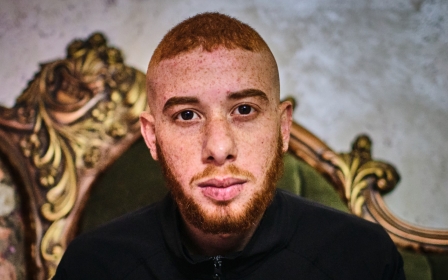Bahrain: Imprisoned opposition leader's health deteriorating, warn family and activists

An imprisoned Bahraini opposition figure has been told he has "significantly damaged" kidneys, but authorities won't provide him with further details or adequate treatment, according to his family and 16 human rights groups.
In a letter released on Monday, the groups called on Bahrain's King Hamad Al Khalifa and Crown Prince Salman bin Hamad Al Khalifa to immediately release Hassan Mushaima in light of the "serious threat" to his health.
"We respectfully urge you to secure his immediate and unconditional release, and, in the meantime, ensure he receives proper medical care and access to his medical records," they wrote.
Mushaima, 75, a founding member of the dissolved al-Wefaq opposition party, has been in prison since 2011, convicted in a mass trial and serving a life sentence for leading anti-government protests.
During his years in prison, rights groups have said Mushaima, who has several chronic medical conditions, has been repeatedly prevented from receiving the care he needs despite being held since July 2021 in a medical centre.
Stay informed with MEE's newsletters
Sign up to get the latest alerts, insights and analysis, starting with Turkey Unpacked
He had been waiting since March to see a specialist for his kidney problems. According to his family, on 30 November the doctor, after running tests, indicated that Mushaima's kidneys are so damaged that he may require dialysis soon.
But when Mushaima asked for more information, the doctor, who works for the health ministry, told him that his information could not be shared without permission from the interior ministry, the family said.
"We are being kept in the dark about my father's medical condition and are forced to fear the worst," said Ali Mushaima, a UK-based Bahraini activist and Mushaima's son.
"Thinking that in his seventies, he will have to spend the rest of his life on dialysis while imprisoned is a nightmare."
Isolated and denied sunlight
Mushaima was placed in the medical centre as a result of multiple conditions he has, which include diabetes and fluctuating blood pressure.
According to Sayed Ahmed Alwadaei, advocacy director at the UK-based Bahrain Insitute for Rights and Democracy (BIRD), in September 2021 Mushaima was offered an alternative sentence which would have seen him serve out his sentence under house arrest.
"He refused that offer," Alwadaei told Middle East Eye. "He thought this would mean an admission of guilt and he turned it down."
Mushaima has said his time in the medical centre, where he is said to have been kept in complete isolation aside from family visits, and denied access to sunlight, is worse than solitary confinement.
'We are being kept in the dark about my father's medical condition and are forced to fear the worst'
- Ali Mushaima, Bahraini activist
Alwadaei said the lack of access to his medical information and not knowing whether he will need dialysis is a form of torture.
"We hope this is all wrong, but this is the torture that the families have to go through - and he himself - about not knowing his fate," said Alwadaei.
Alwadaei also called on the UK government, which has funded training for the institutions that he said are responsible for Mushaima's imprisonment, to "use their leverage to call for his immediate and unconditional release".
Niku Jafarnia, Bahrain and Yemen researcher at Human Rights Watch, said authorities had already "wrongfully taken 12 years of Mr Mushaima's life from him and his family".
"They should immediately release this 75-year-old man and allow him to manage his deteriorating health from the comfort of his home," she said.
MEE has asked the Bahraini government for comment.
Middle East Eye delivers independent and unrivalled coverage and analysis of the Middle East, North Africa and beyond. To learn more about republishing this content and the associated fees, please fill out this form. More about MEE can be found here.




